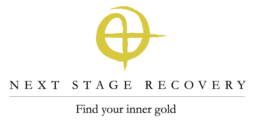Here’s a paradox for you: Success in early recovery depends heavily upon our ability to trust others (e.g. a sponsor, a therapist, our network/support system), but success in long-term recovery depends heavily upon our ability to trust ourselves! Let’s look harder at this paradox.
I can’t begin to count the number of times I’ve heard this refrain in the rooms of recovery: “My best thinking got me drunk (or high)!” The message is clear: “You can’t depend on your own thoughts, beliefs, attitudes and actions to recover from addiction. You need our help to recover from addiction!” There is some truth in this – at least in early recovery. I know that when I came into recovery, I was a mess, mentally and emotionally. I could barely string together a coherent thought. I was severely dysfunctional, riddled with false, crazy ideas, attitudes and behaviors. So yeah, I needed a whole lotta help. My best thinking pretty much stunk. I’m sure I’m not alone in this regard.
So in early recovery, we do need to learn to trust others (safe others). We need to put together a trustworthy recovery team: a sponsor, a network or support system of other people in recovery, maybe a good therapist, potentially a good recovery coach, maybe a clergy-type person. We truly NEED the input of other people who are farther down the road of recovery, people who can guide, support and coach us at a time when we are basically clueless.
But here’s the deal when it comes to long-term recovery: eventually, we need to stop being, and behaving, like children and mature and grow up. I don’t mean to offend anyone, but if you’ve got twenty or more years of recovery and you’re still asking your sponsor to tell you what to do or how to live your life, you may have a problem. At some point, we need to take full responsibility for ourselves and for our lives. That’s what it means to be an adult. Hiding behind the stock phrase “my sponsor told me to do it” just won’t cut it anymore. After enough time in recovery has elapsed, that phrase is nothing more than an abdication of responsibility, which reveals a desire to hide behind a supposedly “wiser” person. The problem is: who’s telling the sponsor what to do? What makes him or her an authority? How do we know that their advice is any better than our own perceptions and intuitions? Telling others “my sponsor told me to do it” does NOT take us off the hook for being responsible for our own choices.
So how do we learn to trust ourselves? The short answer is: practice, practice, practice. Practice listening to our heart: the “still, small voice” within. Practice trusting our gut, our intuition. Practice learning to discriminate between our authentic inner voice and the snares and traps of our ego. Also, as we work on our core issues – our self-sabotaging beliefs, attitudes and behaviors – we become more and more healthy, and our inner impulses become less and less contaminated with old, unconscious, dysfunctional “stuff” that short-circuits our success. Our inner impulses gradually become freed from our “stuff” and thus more and more trustworthy. As we grow in this manner, we become less and less dependent on other people to tell us what to do and how to think. We begin to enter into emotional and spiritual maturity.
Of course, that doesn’t entirely free us from errors and ego. That’s why we continue to need some kind of support system in our recovery. We can run things by other people and get a reality check or feedback if we choose. But using a support system in this way is a far cry from turning to ONE person (usually a sponsor) and asking them to tell us what to do. No; in later recovery we become full, complete, autonomous adults who take responsibility for our choices and actions. We don’t hide behind a “guru” of some sort.
Learning how to trust ourselves is an imperative for long-term recovery.

